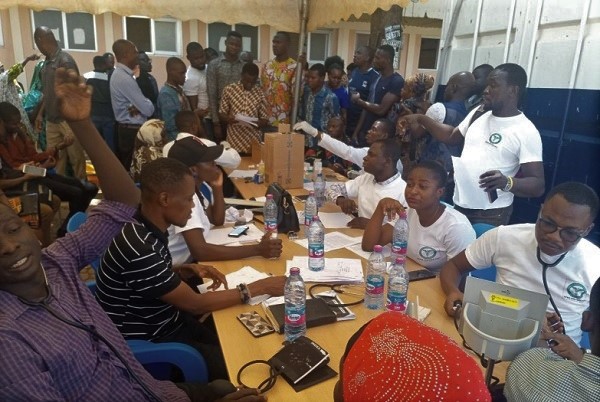
37 Die of kidney disease in north; Patients plead for its inclusion in NHIS
Thirty-seven people died last year from kidney diseases at the Tamale Teaching Hospital (TTH) mainly due to their inability to afford dialysis.
A senior nurse at the Renal Dialysis Unit of the TTH, Mr Awal Issahaku, told the Daily Graphic that the unit also diagnosed 78 patients of kidney diseases but they could not initiate dialysis due to the lack of financial support to pay for the treatment.
However, the unit was able to help 40 patients to recover from kidney-related diseases last year.
Dialysis is the main treatment for kidney-related diseases. It costs between GH¢300 and GH¢350 for a session of dialysis, which has to be performed thrice a week.
Mr Issahaku spoke to the Daily Graphic during a health screening exercise organised by the unit in Tamale last Thursday to commemorate this year's World Kidney Day.
Statistics
He indicated that out of the 2,029 cumulative number of sessions carried out by the unit from January to December last year, 322 persons suffered from chronic kidney diseases while 32 had acute kidney disease.
Regular check-up/congestion
Mr Issahaku explained that there was a high chance of survival for persons suffering from acute kidney diseases as compared to persons suffering from chronic kidney disease.
He, therefore, advised the public to go for regular check-ups for early detection.
He said the unit was the only centre serving the Northern, Upper East, Upper West, Savannah and North East regions
and, therefore, highlighted the need to set up other centres in the Upper East and Upper West to ease the congestion.
The exercise
Touching on the screening exercise, Mr Issahaku said it was to encourage preventive behaviour, transplantation and systematic screening.
He noted that the national celebration of World Kidney Day was hosted in the Eastern Region while the exercise organised by the unit to mark the day was the first of its kind to be held in the northern part of the country.
Symptoms
He mentioned some of the symptoms of kidney disease as swollen ankles, fatigue, difficulty concentrating, decreased appetite, blood in urine and foamy urine.
The senior nursing officer urged the public to monitor their diets and exercise regularly, adding that a person could lose up to 99 per cent of their kidney functions before experiencing any symptoms, thus the need for regular check-ups should not be overlooked.
Appeal by patients
Some patients , for their part, made a passionate appeal for the intervention of the government to help save their lives as they could no more afford the dialysis.
Currently, the dialysis which serves as the main treatment for kidney diseases, is not covered under the National Health Insurance Scheme (NHIS), placing a huge financial burden on patients at the facility.
"We, therefore, need the government's intervention in the treatment of kidney diseases to help save the lives of those suffering from the ailment," they stated.
Mohammed Fuseini, 21, a patient, appealed for help to save his life.
According to him, he was an apprentice at a carpentry shop but due to the sickness he was unable to go to work.
He said his mother who engaged in petty trading was the one supporting him for the treatment but could no longer bear the cost.
Felicia Awuni, another patient who is from Bawku in the Upper East Region, said she was transferred from the Korle Bu Teaching Hospital in Accra to the TTH since she could no longer undergo the treatment due to financial constraints.
She, therefore, appealed to the government to include the treatment of kidney diseases in the NHIS.
Hajia Fati, for her part, said she started losing control of her joints without knowing what it was until she was diagnosed of kidney disease.
According to her, she had been undergoing the dialysis for six months now, twice a week and could not afford the treatment any longer due to financial challenges.
Background
World Kidney Day which was first celebrated in 2006 as a global campaign, is aimed at raising awareness of the importance of the kidneys to the overall health of persons and to reduce the frequency and impact of kidney diseases and their associated health problems.
